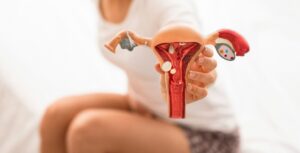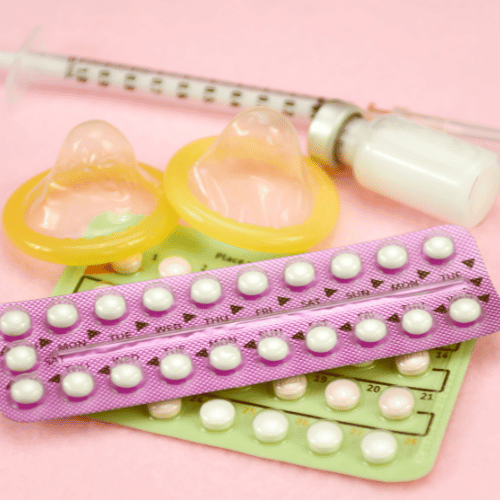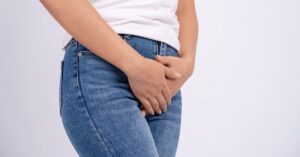
PCOS: Diagnosis, Research & Management
Polycystic Ovary Syndrome is a common endocrine disorder that affects people with ovaries, typically during their reproductive years.
Gynaecology > Contraception

Find Out More


There is a wide range of contraceptive options available, and choosing the right one is a personal and important decision.
We are here to provide you with the information and support you need to make the best choice for your health and lifestyle.
Additionally, we can help you understand how different methods may address existing menstrual issues or patterns.

Hormonal contraception prevents pregnancy through various methods: daily birth control pills, weekly patches, quarterly injections, long-term implants, and hormonal IUDs. Vaginal rings are used for three weeks at a time, while emergency contraception pills are taken after unprotected sex.
Each method has different side effects and effectiveness. Many forms of hormonal contraception, such as birth control pills, hormonal IUDs, and the contraceptive patch, can also help manage heavy periods, reduce menstrual bleeding, and regulate periods.
Non-hormonal contraception methods include barrier options such as condoms, diaphragms, and cervical caps, which block sperm from entering the uterus. The copper IUD prevents sperm from fertilising eggs, while spermicides kill sperm and can be used alone or with barriers.
The withdrawal method, though less reliable, involves pulling out before ejaculation. Fertility awareness methods track cycles to avoid intercourse during fertile times. For permanent contraception, tubal ligation for women and vasectomy for men are available.


Long-acting reversible contraceptives (LARCs) provide effective, long-term contraception with minimal maintenance.
Intrauterine devices (IUDs) are small, T-shaped devices inserted into the uterus, available in both hormonal and non-hormonal types.
Another form of LARC is implants, which are small rods placed under the skin of the arm that release hormones gradually.
Selecting the right contraceptive method depends on various factors, including:
Use our online booking engine or book your test by giving us a call.
On the online booking engine select the “appointment type” you need.
You will be seen by one of our friendly doctors or trained clinicians.

Be ready to discuss your medical history, including any pre-existing conditions, medications you are currently taking, and any allergies. Note any questions or concerns you have about contraception or reproductive health.

Your healthcare provider will likely start with a conversation about your medical history, current health, and lifestyle. They may ask about your sexual activity, menstrual cycle, and any previous experiences with contraception. Based on your needs and preferences, the provider will help you explore various contraception options. They will explain the benefits, risks, and effectiveness of each method. Some methods, like IUDs or implants, might require a physical examination. This could involve a pelvic exam to assess your reproductive health.

For most methods, you will receive immediate feedback on your choice and how to proceed. Some methods may require follow-up tests or appointments. If you choose a method that requires a prescription, your provider will give you a prescription and detailed instructions on how to use it.
Incorporated
in 1998
Experienced doctors & a professional team
Registration
not needed
Up-to-date with the latest treatments & testing
Strictly
confidential
Experienced doctors & a professional team
Affordable private
health care
Transparent fee structure with no hidden charges
We work with experienced consultants & healthcare professionals who have received positive feedback from our patients, and with whom we have established long-term relationships.
Latest Episode
Tune in to our podcast to explore the world of healthcare and learn from distinguished special guests. We cover everything from preventative measures to cutting-edge treatments so that you can stay informed and up-to-date on health-related things.

Polycystic Ovary Syndrome is a common endocrine disorder that affects people with ovaries, typically during their reproductive years.

Menopause is a natural biological process that marks the end of a woman’s reproductive years, typically occurring between ages 45

Learn about vaginal discharge: its role, what’s normal, and when to be concerned. Stay informed for optimal health.
Subscribe for latest updates & news


From same-day private GP and blood test appointments to visa medicals, a sexual and reproductive health clinic, and preventative health screenings, we are here to help.
Contact Us
Accepted Insurance Companies






Please note that Walk-in Clinic is a private medical centre & not an NHS service. Harley Walk-in Clinic Ltd company registration no. 07472804